Q&A With Samantha Yee
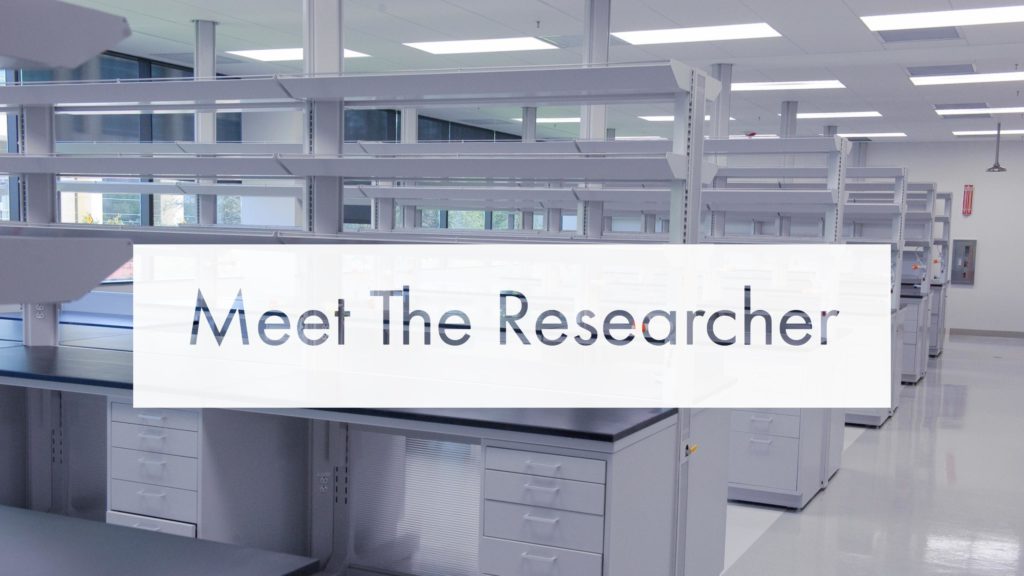
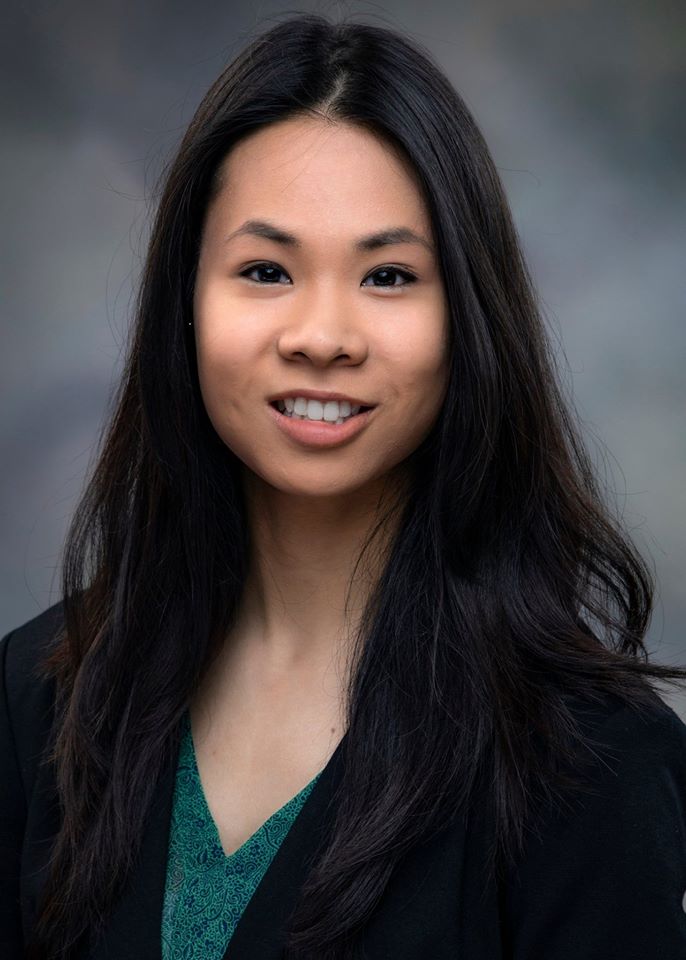 Your name, program, mentor name.
Your name, program, mentor name.
My name is Samantha Yee, but I prefer Sam as my nickname. I am a 3rd year Ph.D. student in Dr. April L. Risinger’s lab in the Physiology & Pharmacology discipline of the Integrated Biomedical Sciences program in the UT Health San Antonio Graduate School of Biomedical Sciences (GSBS).
Please tell me about yourself, why did you pick UT Health San Antonio, and your program.
I was born in Ottawa, Ontario, Canada and did all of my schooling until college in Canada. Growing up in Canada, I learned how to dance and figure skate, while being a multi-sport athlete in school. For college, I obtained my B.S. in Biology from St. Lawrence University, Canton, N.Y. then furthered my research experience at UT Southwestern Medical Center (UTSW), Dallas, Texas for 2 years.
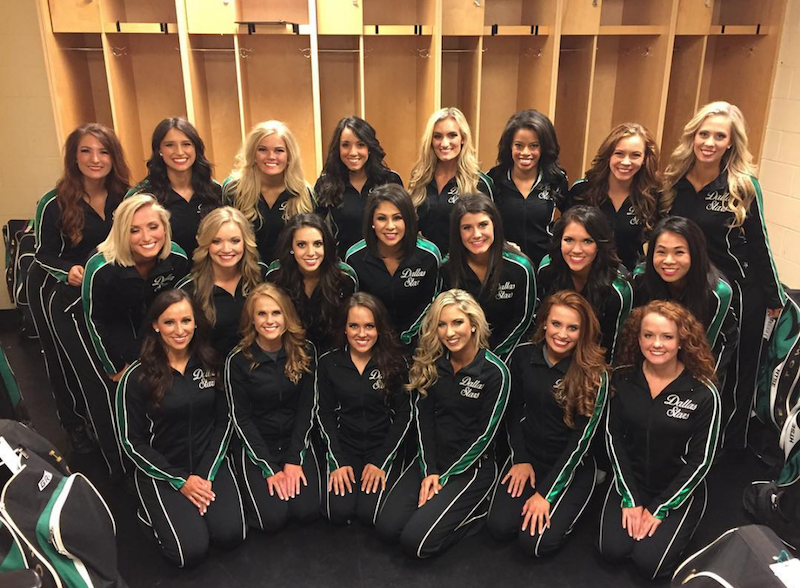
My teammates and I from the Dallas Stars Ice Girls
Why did I pick UT Health San Antonio in a broad sense?
As a Canadian, I grew up in the snow and cold, so I really enjoyed my research assistant experience in Dallas as I did not have to scrape my windshield or wear my winter clothes. During my time in Dallas, I was honored and humbled to have the opportunity to be a member of the Dallas Stars Ice Girls, where I was able to become a STEM representative and conduct community outreach. As a STEM representative, I talked to elementary- high school students about my full-time career as a scientist while having multiple passions, such as dancing and skating. When their parents realized that members of the Dallas Stars Ice Girls were more than just professional cheerleaders, it was certainly a rewarding experience for me as I fully support the phrase, “don’t judge a book by its cover.” By having my full-time research and job as a Dallas Stars Ice Girl, I have continuously improved on time management and efficiency, which have contributed to my scientific success and productivity so far. During my time at UTSW, I ended up with two publications where one of them was a second author Cell paper.
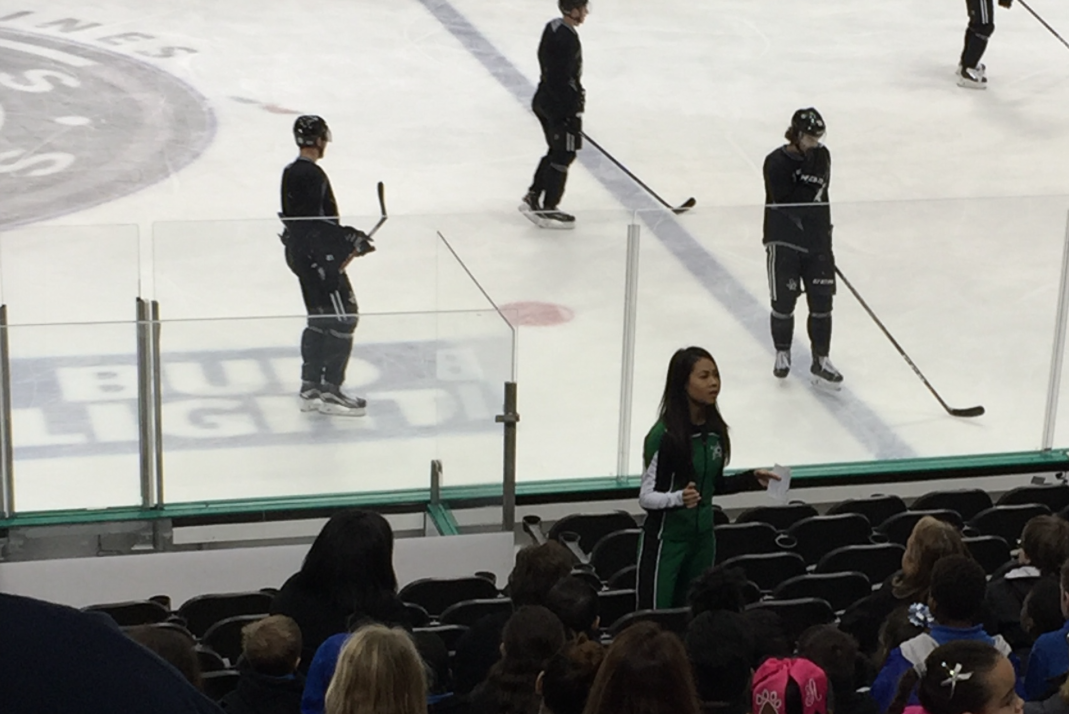
Why UT Health San Antonio and the Physiology & Pharmacology discipline specifically?
When I interviewed here, I found the individuals (interviewees and non-interviewees, i.e. students, faculty, staff, and administration) to be very welcoming. A large number of the students who I interviewed with are currently my classmates. I based my decision on what types of students were interviewing at the school, interactions with faculty and current graduate students, and research conducted on campus to see whether I would be a good fit. I chose the Physiology & Pharmacology discipline due to the type of research I am currently conducting, which is Cancer Pharmacology. By having Pharmacology as my backbone, I have taken Cancer Biology courses on the side. In addition, the Physiology & Pharmacology discipline is a tight knit community and fosters a positive environment.
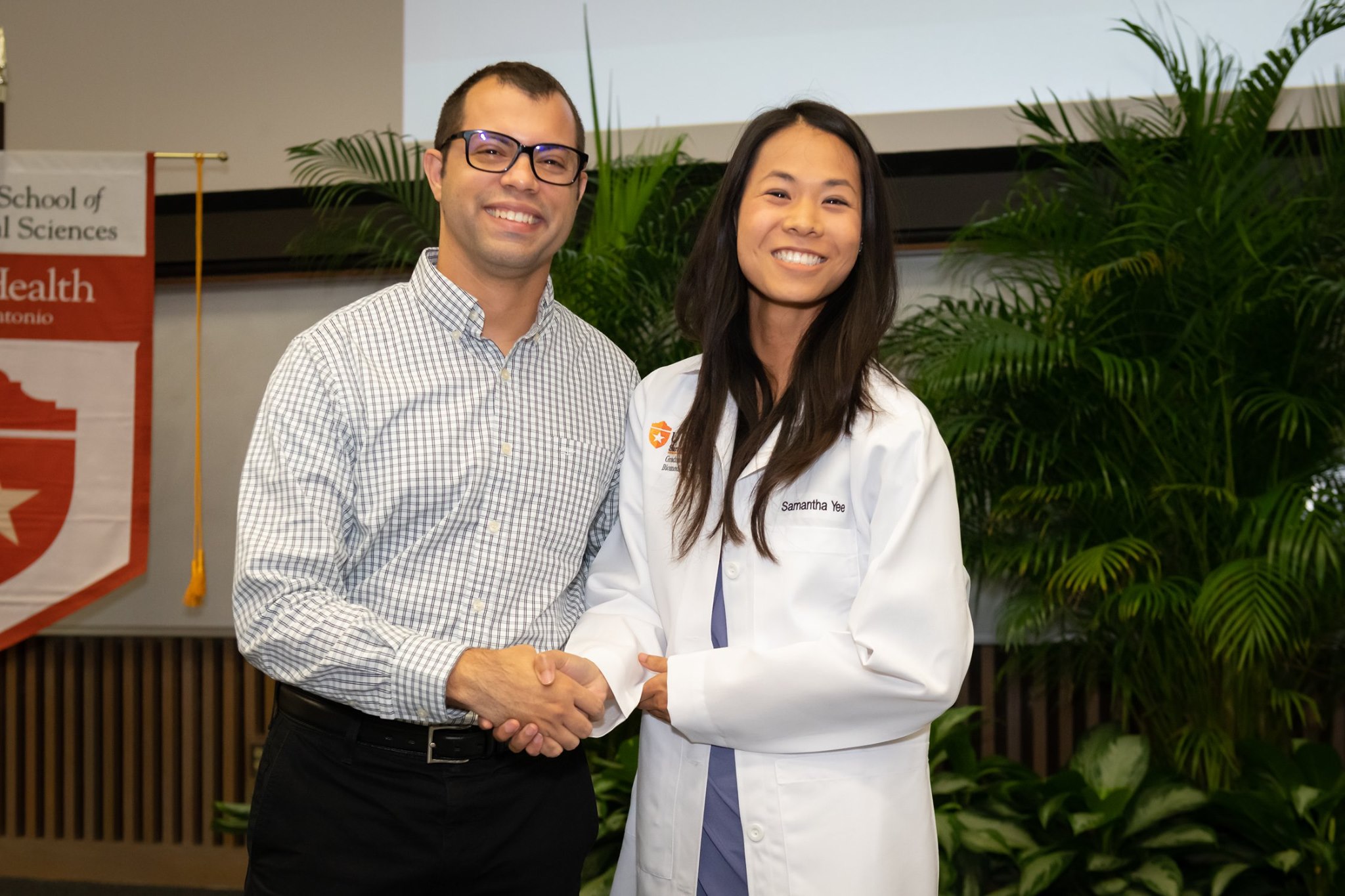
Dr. Charles Fermaintt (Risinger Lab IRACDA Scholar and Postdoc) and I shaking hands during the White Coat Ceremony to celebrate PhD candidacy as a result of passing the Qualifying Exam
How did you stumble upon science as one of your passions?
My high school biology teacher is one of the several reasons why science is one of my passions. She was very enthusiastic and loved to educate her students about science going on inside and outside of the classroom.
Tell me about your research. Why are you passionate about your research topic? How did you first become interested in it?
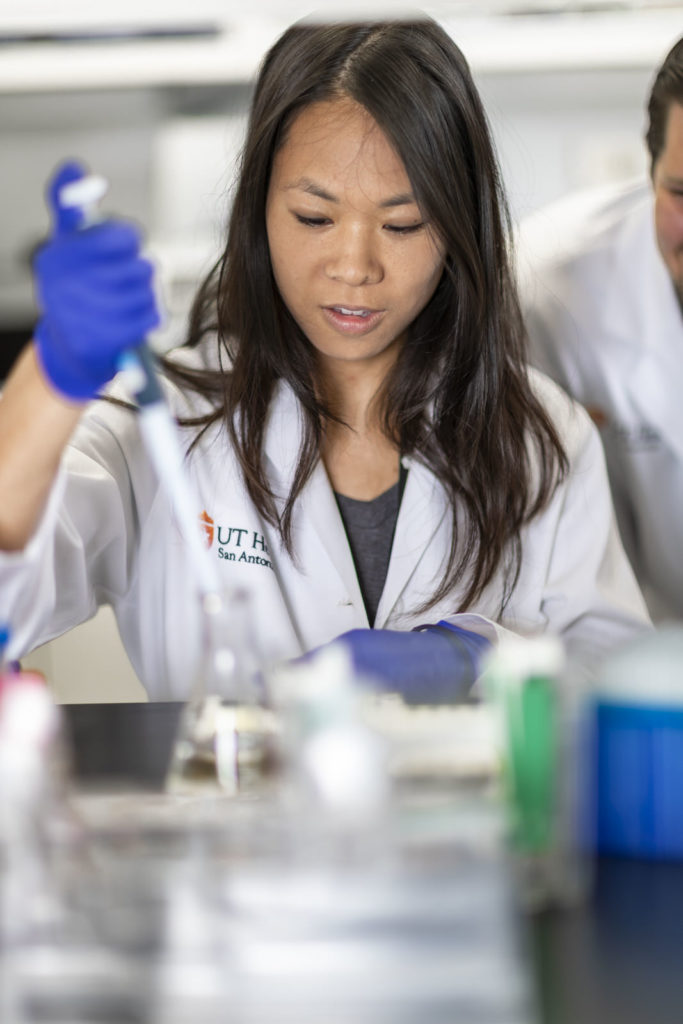 The eye opening experience that really pushed me to pursue a Ph.D., focusing on ovarian cancer as the disease, happened during my senior year of high school. At the start of the year, I constantly felt tired and had a sharp pain in my lower stomach area. After multiple visits to the doctor, I learned I had a solid mass on my right ovary. The doctor told me that it was normal to have liquid cysts on the ovary, but having a solid mass was a bit concerning. They weren’t sure whether it was cancerous or not, and their only solution was to remove the mass via surgery. Surgery was set for the end of my senior year, as the recovery period would conflict with sporting events throughout the year. Being in my senior year of high school, I was already looking at universities to further my education and the fatigue and sharp pain were making things a bit difficult to be as involved in school activities. The doctor’s recommendation for dealing with the pain was to continuously take Tylenol. Moving forward to the surgery, they successfully removed the solid mass and concluded that it was not cancerous. I was definitely relieved.
The eye opening experience that really pushed me to pursue a Ph.D., focusing on ovarian cancer as the disease, happened during my senior year of high school. At the start of the year, I constantly felt tired and had a sharp pain in my lower stomach area. After multiple visits to the doctor, I learned I had a solid mass on my right ovary. The doctor told me that it was normal to have liquid cysts on the ovary, but having a solid mass was a bit concerning. They weren’t sure whether it was cancerous or not, and their only solution was to remove the mass via surgery. Surgery was set for the end of my senior year, as the recovery period would conflict with sporting events throughout the year. Being in my senior year of high school, I was already looking at universities to further my education and the fatigue and sharp pain were making things a bit difficult to be as involved in school activities. The doctor’s recommendation for dealing with the pain was to continuously take Tylenol. Moving forward to the surgery, they successfully removed the solid mass and concluded that it was not cancerous. I was definitely relieved.
Looking back on the experience, I felt extremely powerless and stressed because the only solution the doctors had in determining whether the solid mass was cancerous or not was through surgery. The whole process truly inspired me to find a way to better patient experience, by decreasing uncertainty and stress levels, through improving diagnosis and treatment of ovarian cancer. I questioned why my body created a mass and how we could treat the pain without taking pain medication. Furthermore, I became more curious about the human body in terms of how certain things like diet can influence your health. From that moment on, I knew that I wanted to be a part of the research, in order to make a direct difference in someone’s life.
What do you want the public to know about your research? Why is your topic important?
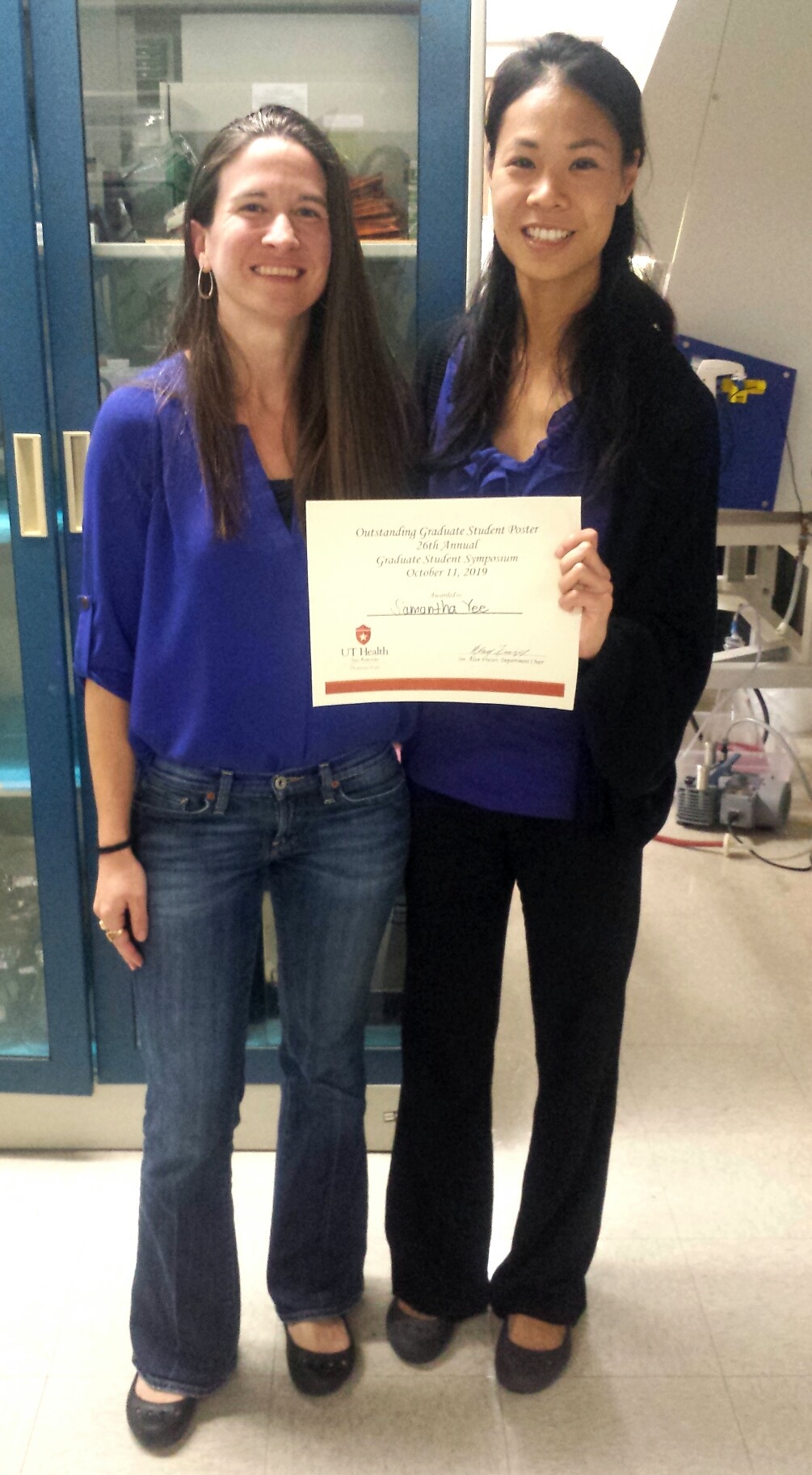
Dr. April L. Risinger and I after the 2019 Graduate Student Symposium for the Pharmacology Department celebrating the Outstanding Poster Award I received.
Although the standard of care for ovarian cancer is initially effective, a majority of patients acquire drug resistance. Ovarian cancer is often diagnosed during late stages, so treatment that does not eventually lead to patients acquiring drug resistance would be optimal. Therefore, we need to better understand the disease and improve treatment for patients. My current research focuses on evaluating a novel class of microtubule stabilizers, the taccalonolides, in both in vitro and in vivo ovarian cancer models.
Are you apart of any organizations/student clubs that you are passionate about? If so, tell me about them.
I have been a part of the Student Government Association (SGA) for soon to be three full years, where I have been a representative, the secretary, and the current treasurer. This upcoming year, I will be the president of the SGA, where the SGA comprises of students from all six schools at UT Health San Antonio. I love being a part of the SGA because I can better appreciate what other students are doing on campus, and I can get to know them more at a personal level than casually passing by individuals in the hallways. Also, I am a current member of WISDOM and the International Student Club through the GSBS. Outside of the GSBS, I am a member of the San Antonio Chapter of the National Ovarian Cancer Coalition.

What do you like to do outside of graduate school?
Some things I like to do outside of being a graduate student include: community outreach, networking, hiking, dancing, working out, amateur photography, hanging out with friends (movie nights, sand and indoor volleyball intramurals), cooking, catching up with the family, and traveling (when given the opportunity).
What’s next?
I’m looking forward to completing my Ph.D. research here, while making a positive footprint as an individual for other students at UT Health San Antonio. As a research scientist, I love waking up every day knowing I’ll be learning something new, while having fun, and trying to translate my work that will be useful for patients (bench to bedside).
